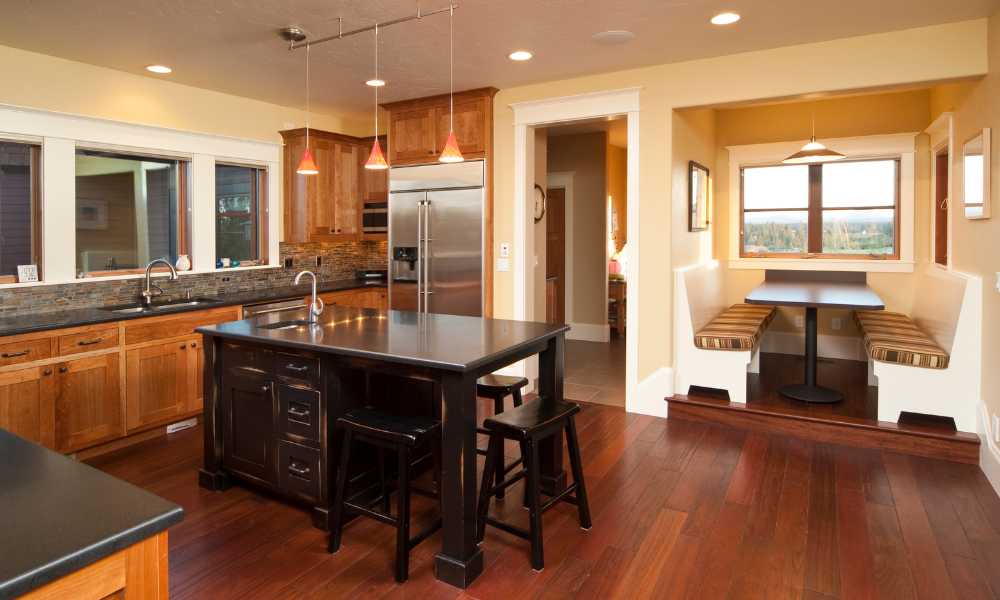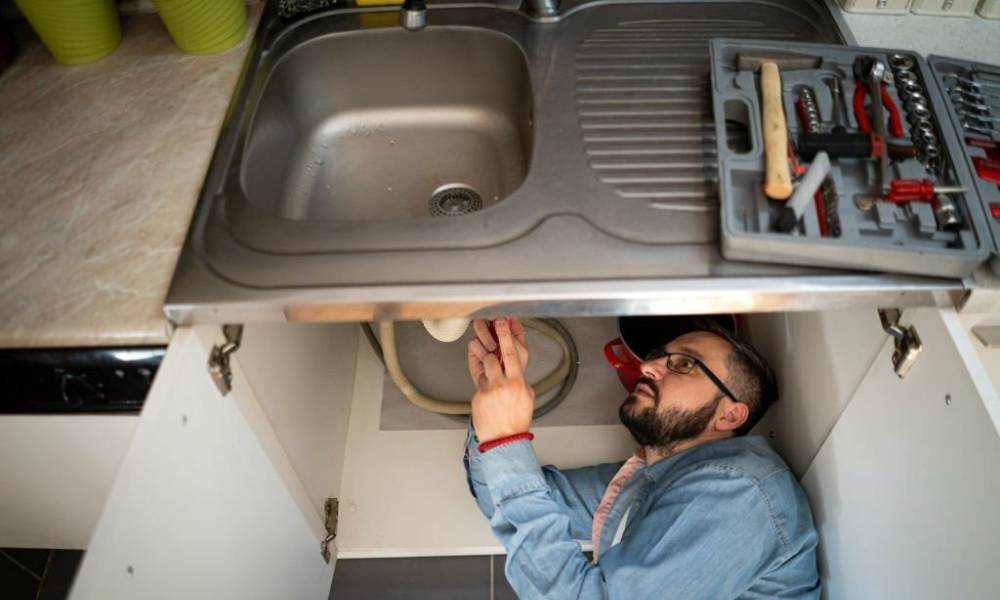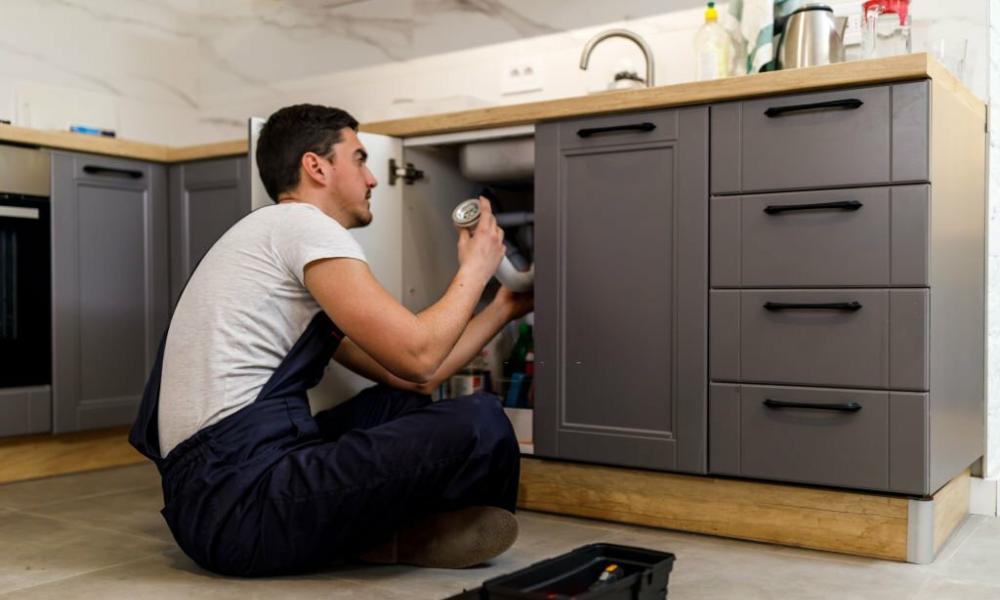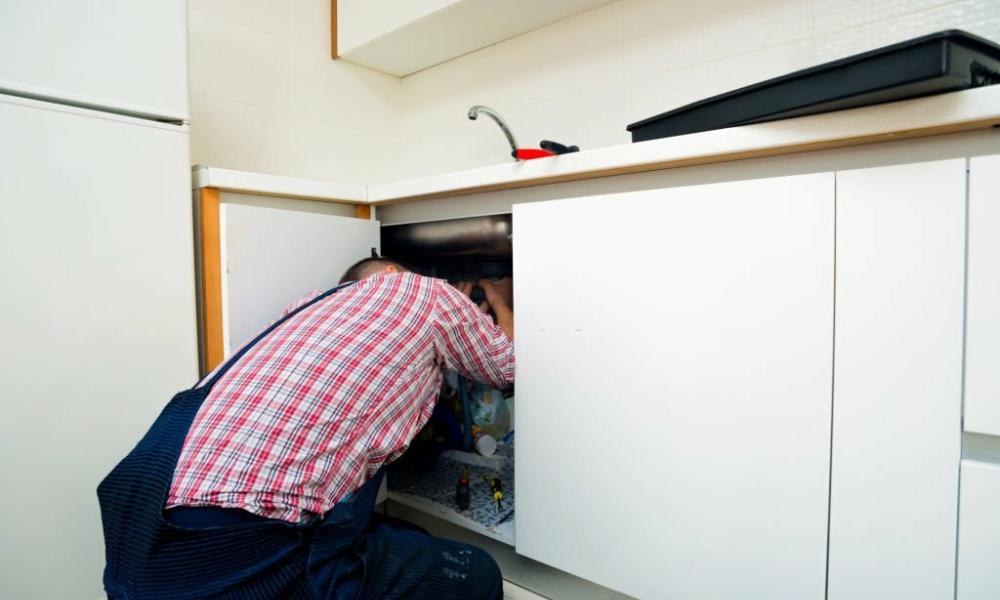The kitchen is often considered the heart of the home, buzzing with activity and warmth. However, this bustling hub can also be a battleground for your beautiful hardwood floors. From spills and scratches to constant foot traffic, your kitchen floor faces daily challenges that can diminish its elegance over time. But fear not, for in this article, we unveil the secrets to safeguarding your protect hardwood floors in the kitchen. By implementing a few simple yet effective strategies, you can ensure that your floors remain pristine and stunning for years to come.
01. Layer With Rugs, Especially At Entries
Rugs not only enhance the aesthetic appeal of your kitchen but also play a crucial role in protecting your hardwood floors. Placing rugs in high-traffic areas and at entry points acts as a barrier, absorbing moisture and trapping dirt and debris that could otherwise scratch or damage the floor’s surface. Opt for rugs with non-slip backing to ensure safety and prevent them from sliding. Additionally, choosing rugs that are easy to clean will make maintenance a breeze, allowing you to keep both the rugs and your hardwood floors looking their best.
02. Leave Shoes At The Door
Implementing a ‘no shoes’ policy in your home is another effective measure to protect your hardwood floors in the kitchen. Shoes can carry hard debris, including small stones and sand, which can scratch the floor’s surface when walked over. Furthermore, high heels or any footwear with hard, sharp soles can exert pressure and cause dents. By leaving shoes at the door, you significantly reduce the risk of these types of damage. Providing a designated shoe rack or storage bench at the entrance can encourage family members and guests alike to adhere to this rule. For added comfort, consider offering indoor slippers that are gentle on the floors.
03. Apply Felt Furniture Pads To Furniture Feet
Attaching felt furniture pads to the base of kitchen furniture presents an effortless yet remarkably effective method to shield your hardwood floors from damage. The regular movement of chairs, bar stools, and tables within the kitchen environment poses a constant threat of scratches, scuffs, and deep marks to the hard surface. By affixing robust felt pads underneath the legs of these pieces. You establish a protective layer that prevents harm to your floors during everyday activities. These pads are not only budget-friendly and straightforward to apply but also come in a variety of sizes to accommodate different types of furniture legs. It’s important to periodically inspect and replace the pads to ensure they remain free from dirt and debris, which could otherwise lead to scratches.
04. Use Plastic Slides For Metal Furniture
Metal furniture, while stylish and durable, can be particularly harsh on hardwood floors due to its weight and sharp edges. To mitigate this, using plastic slides on the bottom of metal chairs, tables, and stools can dramatically reduce the risk of scratches and dents. The plastic slides act as a buffer between the metal furniture and your hardwood floors. Allowing the furniture to glide smoothly without causing damage. These slides are available in various shapes and sizes to fit different types of furniture legs, making them a versatile solution for floor protection.
05. Apply Floor Finish
Regularly applying a high-quality floor finish provides an additional layer of protect for your hardwood floors in the kitchen. This finish acts as a sealant, guarding the wood against stains, spills, and moisture common occurrences in a kitchen environment. Choose a finish that is specifically designed for hardwood floors. These are typically durable, water-resistant, and can withstand the high traffic typical of kitchen areas. It’s advisable to reapply the finish according to the manufacturer’s recommendations or whenever you notice signs of wear.
06. Immediate Spill Cleanup
Immediate action is crucial when it comes to spills on protect hardwood floors in the kitchen. The longer any liquid sits on the wood, the higher the chance it will seep into the cracks and crevices, possibly causing the wood to warp or stain. Always have a soft, absorbent cloth or paper towels nearby to quickly blot up spills. Avoid rubbing, as this can spread the liquid further or push it deeper into the wood. For sticky or greasy spills. A damp cloth with a mild detergent can be used, followed by a dry cloth to remove any moisture. By adopting swift spill cleanup habits, you ensure that accidents don’t turn into lasting damage.
07. Sweep And Mop Regularly
Maintaining a regular cleaning routine is essential for keeping hardwood floors in the kitchen looking their best. Sweeping daily with a soft-bristled broom or using a dry microfiber mop can effectively remove dust and dirt. And other particles that could scratch the floor’s surface. When it comes to mopping, it’s crucial to use a damp mop rather than a wet one. Excess water can seep into the wood, causing it to expand, warp, or even rot over time. Opt for a gentle, pH-neutral cleaner specifically designed for hardwood floors. And always follow up with a dry mop to eliminate any lingering moisture.
08. Control Humidity
Controlling the humidity level within your kitchen and the entire home is pivotal in safeguarding your hardwood floors. Wood is a natural material that reacts to changes in humidity by expanding and contracting. Which can lead to warping, cupping, or cracking over time. Ideally, maintaining indoor humidity levels between 30% and 50% year-round helps minimize these risks. Utilizing humidifiers during dry winter months and dehumidifiers or air conditioners during hot, humid summers can significantly stabilize the internal environment.
Best Protection For Hardwood Floors
- Inspect Regularly: Conduct frequent inspections for any signs of wear and tear. Look out for scratches, dents, or areas where the finish is wearing off. Early detection can prevent minor issues from becoming major problems.
- Polish Periodically: Depending on the amount of traffic your kitchen receives, polish the floors every few months using a product compatible with your floor’s finish. Polishing can renew and refresh the appearance of your floors.
- Professional Refinishing: Consider having your floors professionally refinished every 5 to 10 years. Refinishing removes the old protective layer and applies a new one, essentially giving your floors a facelift and extending their life.
Conclusion
By using rugs or mats in high-traffic areas, wiping spills immediately, and avoiding high heels or heavy furniture on the floors, you can significantly extend their lifespan. Additionally, using protective pads on furniture legs and regularly cleaning with appropriate products will help maintain the natural beauty of your hardwood floors. Remember that proper care and attention to detail are essential for keeping your floors looking their best for years to come. Take action now to implement these tips and ensure the longevity of your kitchen hardwood floors.
FAQs
Can You Clean Hardwood Floors With Water?
While some water is fine for cleaning hardwood floors, it’s important to avoid using an excessive amount or leaving any standing water on the floor. Too much water can cause damage by seeping into the wood and causing it to swell or rot over time.
How Do You Fix A Scratched Floor?
Minor scratches can often be buffed out with a soft cloth and hardwood floor cleaner. For deeper scratches, consider using a wood stain marker or filling the scratch with wood filler before refinishing the affected area.
How Do You Take Care Of Kitchen Hardwood Floors?
Taking care of kitchen hardwood floors involves regular cleaning and maintenance, avoiding excessive water or spills, using furniture protectors, controlling humidity levels, and conducting routine inspections. It’s also essential to promptly clean up any messes or accidents to prevent lasting damage. By following these tips and incorporating them into your cleaning routine, you can keep your kitchen hardwood floors looking beautiful for years
Is Hardwood Floor Ok For Kitchen?
Hardwood floors can be a suitable choice for the kitchen, but they do require some extra care and maintenance due to the potential for spills and high traffic. It’s essential to choose a durable finish and regularly clean and protect the floors to ensure their longevity in this busy area of your home. Additionally, consider using rugs or mats in high-traffic areas to further protect the wood.




